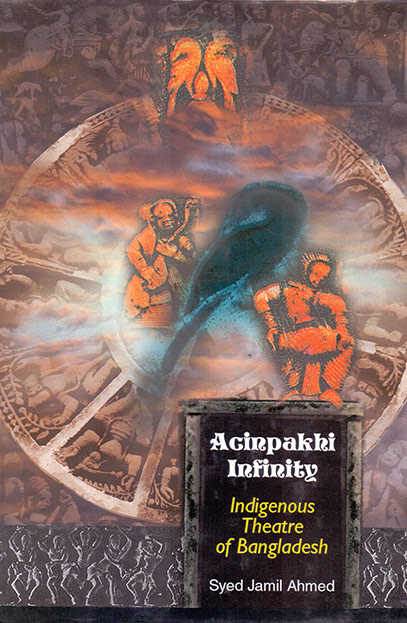
- Shop
- Acinpakhi Infinity: Indigenous Theatre of Bangladesh
Acinpakhi Infinity: Indigenous Theatre of Bangladesh
https://uplbooks.com/shop/9789840514625-acinpakhi-infinity-indigenous-theatre-of-bangladesh-11858 https://uplbooks.com/web/image/product.template/11858/image_1920?unique=b656810
| Language: English |
Tags :
Book Info
Acinpakhi Infinity combines a wide range of theoretical learning and understanding of the indigenous theatre in Bangladesh and describes fully the way in which the tradition lives in Bangladesh today. It studies over eighty genres, which are related to various religions, (such as Islam and Buddhism), and cults. It also includes a number of secular performances. The methodology adopted for the major part of the study is based on fieldwork which includes witnessing performances in actual conditions, interviewing the performers and the spectators, and studying written texts, audio recordings and photographs of performances. In a few cases, performances, which no longer exist, have also been studied from published accounts. Excepting the minor cases, most of the genres have been studied in terms of: (i) background information of the genre, its performers and sponsors, (ii) performance space, (iii) text, (iv) structure of performance and (v) miscellaneous information related to the genre. Plans of performance space and photographs of performance have also been provided. Art forms tend to go through perpetual changes but it is hoped that the book will help the readers journey into an art form rooted in endogenity.

Syed Jamil Ahmed
Syed Jamil Ahmed is a director and designer in theatre and an Associate Professor at the Department of Theatre and Music, University of Dhaka. Born in 1955, he graduated from the National School of Drama (New Delhi, India) in 1978, earned his MA in Theatre from the University of Warwick (Coventry, England) in 1989 and his Ph.D. from the University of Dhaka (Bangladesh) in 1997. His reputation is well established as a director with credits such as Chaka (Dhaka), Bishad Sindhu (Dhaka), Ek Hazar Aur EK Thi Rate (Karachi), and also as a designer with credits such as Achalayatan (Dhaka), Kittankhola (Dhaka), Keramat Mangal (Dhaka), Good Woman of Setzuan (Calcutta). The distinction of his work is in the sharp contemporary


